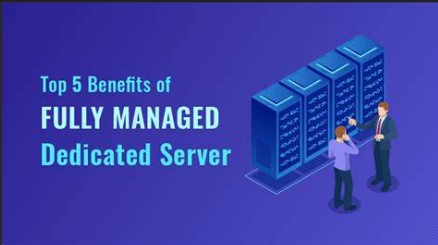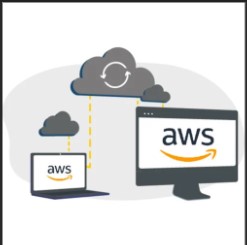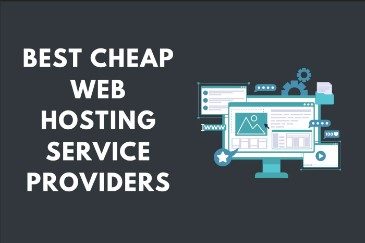Buy Hosting
In the grand tapestry of the digital world, web hosting stands as the bedrock upon which the skyscrapers of the internet are built. Without a solid foundation, even the most beautifully designed website will crumble under the weight of user traffic and data demands.
Hosting is more than just a virtual space; it’s the lifeline that keeps your website accessible, fast, and reliable. It’s akin to choosing the right plot of land before building a dream home – pivotal for stability and future growth.
Why Quality Hosting Matters: Speed, Security, and Stability
Imagine navigating a website that lags, stutters, or crashes frequently. Frustrating, isn’t it? Quality hosting ensures that your site runs at optimal speed, offering a seamless user experience. Speed isn’t just a luxury; it’s a necessity. Slow load times can drive potential customers away faster than you can say “bounce rate.”
Security is another critical facet. In an era rife with cyber threats, robust hosting services provide fortified defenses against hackers and malware. This protection extends to sensitive customer data, fostering trust and safeguarding your reputation.
Stability is the third pillar. Reliable hosting minimizes downtime, ensuring that your website remains accessible around the clock. In the digital marketplace, an offline site equates to lost opportunities and revenue. Quality hosting amalgamates speed, security, and stability into a trifecta of digital excellence.
The Impact of Hosting on SEO: Getting Found Online
Search engine optimization (SEO) is the compass that guides users to your website. However, even the most well-optimized content can flounder if paired with subpar hosting. Search engines prioritize websites that load quickly and consistently. A sluggish site is often penalized in rankings, and relegated to the shadowy recesses of search results.
Moreover, security features like SSL certificates, often provided by top-tier hosting services, are now a ranking factor. Ensuring your site is secure can boost your position on search engine results pages (SERPs), enhancing visibility. Quality hosting can be the silent partner in your SEO strategy, underpinning all your efforts with a robust, reliable platform.
How Downtime Can Hurt Your Business: The Cost of Cheap Hosting
Penny-pinching on hosting can seem like a savvy move, but the hidden costs can be staggering. Downtime – the period when your website is inaccessible – can decimate your credibility and bottom line. Customers expect round-the-clock availability; even a few minutes of downtime can result in lost sales and eroded trust.
Cheap hosting often comes with shared resources, meaning your site’s performance is contingent on the activity of others on the same server. A spike in traffic on a neighbor’s site can slow you to a crawl or take it offline entirely. Investing in robust hosting is an investment in your business’s continuity and reputation.
Types of Web Hosting: Finding the Perfect Fit for Your Needs
The hosting landscape is diverse, catering to various needs and budgets. Understanding the types available can help you make an informed decision that aligns with your goals.
Shared Hosting: Affordable and Beginner-Friendly
Shared hosting is the entry-level option, perfect for small websites or those just starting. It’s like renting an apartment; you share resources with other tenants. This makes it affordable but can lead to performance issues if one site hogs resources. For personal blogs or small businesses with modest traffic, shared hosting offers a cost-effective and straightforward solution.
VPS Hosting: The Balance of Power and Price
Virtual Private Server (VPS) hosting is a step up, providing dedicated resources within a shared environment. It’s akin to owning a condo; you have more control and privacy compared to an apartment. VPS hosting offers better performance and flexibility, making it suitable for growing businesses needing more than shared hosting but not ready for the full leap to dedicated hosting.
Dedicated Hosting: Unmatched Performance for Growing Websites
Dedicated hosting is the pinnacle, offering an entire server for your exclusive use. It’s like owning a mansion; you have full control over the environment. This translates to superior performance, security, and customization options. For large businesses or high-traffic websites, dedicated hosting provides the infrastructure necessary to thrive without compromises.
Cloud Hosting: Scalability and Flexibility in the Digital Age
Cloud hosting utilizes a network of virtual servers to host websites, offering unparalleled scalability and redundancy. It’s like having a timeshare; resources are drawn from a pool and can be scaled up or down based on demand. This flexibility ensures consistent performance even during traffic spikes. Cloud hosting is ideal for businesses looking for resilience and the ability to grow without the constraints of traditional hosting models.
WordPress Hosting: Tailored for Your WordPress Site
For those using WordPress, specialized hosting services are available. These are optimized for WordPress’s unique requirements, offering features like pre-installed plugins, automatic updates, and enhanced security. Think of it as a custom-built house; everything is designed to work seamlessly with your needs. WordPress hosting simplifies management and boosts performance, making it a great choice for WordPress enthusiasts.
Key Features to Look for When Buying Hosting
When selecting a hosting provider, certain features are non-negotiable. These elements ensure that your site remains live, fast, and secure.
Uptime Guarantees: Ensuring Your Site Stays Live
Look for providers that offer an uptime guarantee, ideally 99.9% or higher. This ensures your site is accessible virtually all the time. Downtime should be rare and minimal, preventing potential losses and maintaining user trust.
Bandwidth and Storage: Room to Grow
Assess your site’s needs for bandwidth and storage. Adequate bandwidth ensures your site can handle traffic without slowing down, while ample storage accommodates your content and data. Opt for scalable solutions to accommodate future growth without switching providers.
Customer Support: Help When You Need It Most
Reliable customer support is crucial. Issues can arise at any time, and swift resolution is essential to minimize disruptions. Look for providers offering 24/7 support through multiple channels, including live chat, phone, and email.
Security Features: Protecting Your Data and Your Customers
Security features are paramount. Ensure your host provides strong firewalls, regular backups, SSL certificates, and DDoS protection. These measures safeguard your data and protect your site from malicious attacks.
Pricing Plans: Finding the Best Value
While budget considerations are important, the cheapest option isn’t always the best. Compare pricing plans to find a balance between cost and features. Look for transparent pricing without hidden fees and consider long-term value over short-term savings.
Choosing the Right Hosting Provider: Making an Informed Decision
Selecting the right hosting provider is a critical decision that can shape your website’s future.
Reputation and Reviews: Learning from Others’ Experiences
Research potential hosts by reading reviews and testimonials. Positive feedback from current or past users can provide valuable insights into a provider’s reliability and performance. Look for patterns in reviews to gauge overall satisfaction.
Trial Periods and Money-Back Guarantees: Risk-Free Testing
Many hosts offer trial periods or money-back guarantees, allowing you to test their services without financial risk. Take advantage of these offers to evaluate performance, support, and features firsthand before committing.
Customer Support Quality: Availability and Expertise
Test the quality of customer support by reaching out with pre-sale questions. Assess their response time and the helpfulness of their answers. Effective, knowledgeable support can be a lifesaver when issues arise.
Extra Services and Bonuses: What Else Do They Offer?
Consider any additional services or bonuses offered, such as free domain registration, website builders, or marketing credits. These extras can add significant value and simplify other aspects of setting up and running your website.
Migrating to a New Host: A Step-by-Step Guide
Switching hosts can be daunting, but a methodical approach can ease the transition.
Preparing for the Move: Backing Up Your Site
Before migrating, ensure you have a complete backup of your website. This safeguard protects against data loss during the transfer. Most hosts provide backup tools; use them to create a copy of your site’s files and database.
Choosing the Right Time: Minimizing Downtime
Plan the migration for a low-traffic period to minimize the impact on users. Inform your audience of potential downtime in advance to manage expectations and maintain trust.
The Migration Process: Transferring Your Data
Follow your new host’s migration guide or enlist their support team for assistance. Transfer your site’s files and database to the new server, and update your domain’s DNS settings to point to the new host.
Testing Your Site: Ensuring Everything Works Perfectly
After migration, thoroughly test your site to ensure everything functions correctly. Check for broken links, missing images, and performance issues. Conduct a full walkthrough to confirm all features work as intended.
After the Move: What to Do Next
Once your site is live on the new host, monitor its performance closely. Address any issues promptly and take advantage of new features or optimizations offered by the new provider. Update your backup routines to align with the new environment.
Conclusion: Investing in Your Website’s Future with the Right Hosting
Choosing the right hosting is an investment in your website’s success. It underpins every aspect of your online presence, from speed and security to SEO and user experience. By understanding your needs and carefully evaluating your options, you can select a hosting provider that will support your growth and help you achieve your digital ambitions.





